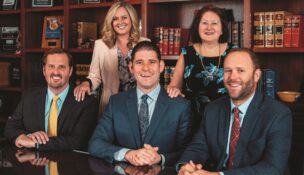Why Your Organization Needs a Fraud Hotline


Why Your Organization Needs a Fraud Hotline

You may have heard a lot about the benefits of a fraud hotline, but does your organization really need one? Absolutely, and here’s why.
The Association of Certified Fraud Examiners’ (ACFE) research indicates that occupational fraud is more likely to be detected through a tip than by any other method including internal audits, management reviews, documentation examinations or external audits. An appropriately implemented, confidential hotline service makes your employees part of your fraud prevention and detection program and can significantly reduce the frequency and magnitude of potential fraud.
The ACFE’s research indicates that hotlines result in a 41% reduction in median loss and a 50% reduction in the duration of the fraud. Therefore, it makes good sense — and is good governance — to give your employees a way to alert you about potential fraud or unethical behavior.
But we’re a pretty small organization; do we still need a hotline?
Yes, you do. Organizations of all sizes should have fraud hotlines. Fraud hotlines can be particularly beneficial to smaller organizations, which typically have fewer internal controls and resources dedicated to fraud prevention. Furthermore, confidential hotlines hosted by third parties are available at cost-effective prices for even the smallest of organizations.
Okay, so my organization could benefit from a fraud hotline. But I know a local company that signed up for a hotline service, sent out an email to employees announcing the hotline and was surprised when they received no reports. How can you prevent this from happening?
If only it were that easy. An effective fraud hotline requires some forethought, planning and good execution to generate the potential benefits. First, you need to think about how you’re going to introduce the hotline to your employees. Merely sending out an announcement email and hanging a poster in the break room will not do — the email is forgotten, and the poster quickly becomes wallpaper next to the coffee machine.
To actively engage your employees in the process, you need to educate them on what occupational fraud might look like in their areas of responsibility. A good hotline service will train employees about the most prevalent types of fraud in their respective industry. Training your employees has several benefits including:
- Employees tend to explain away the clues of occupational fraud when they see them in close associates — but if they’ve been trained on what fraud red flags actually look like, they’re more likely to recognize them for what they are.
- Educating your employees turns them into your “eyes and ears” when it comes to fraud. They will more quickly recognize a potential fraud and know they have an avenue to let you know about their concerns. The earlier you know about a potential fraud, the quicker you can investigate.
- Employees will better understand what the hotline should be used for, and you’ll get fewer reports about annoying personal habits of co-workers or “bad hair day” calls.
So, we implement a hotline and we get a report. What do we do now?
You need to decide which personnel, in which departments, should be involved in various types of internal investigations. The CFO may not need to be involved in the investigation of an HR report, and the vice president of HR may not need to be involved in a potential accounting issue.
For some reports, you may need to consult with outside counsel or forensic accountants. It’s good to think about these issues before an impending crisis. Your hotline service should help you determine an appropriate investigation protocol for your organization. If your hotline service has experienced fraud professionals on board, they could even help you determine appropriate procedures for internal investigations.
If you don’t have a fraud hotline, you should, and if you have one, make sure it was implemented appropriately. Because with fraud, it’s not just your organization’s money at risk — it’s your reputation as well.
(This sponsored content was provided by BKD.)
 Rand Gambrell, CPA, CVA, CFE, ABV, CFF is a director of BKD's forensics and valuations services division. As a member of this division, Rand provides business valuation services, forensic accounting, economic damage analysis, fraud auditing and bankruptcy and restructuring services, including serving as an expert witness. His more than 20 years of experience also includes performing audits and consulting services for large national and international companies while with an international accounting firm. He is also a member of the American Institute of CPAs, Colorado Society of Public Accountants, National Association of Certified Valuators and Analysts and the Association of Certified Fraud Examiners. For more information from BKD on fraud hotlines, click here.
Rand Gambrell, CPA, CVA, CFE, ABV, CFF is a director of BKD's forensics and valuations services division. As a member of this division, Rand provides business valuation services, forensic accounting, economic damage analysis, fraud auditing and bankruptcy and restructuring services, including serving as an expert witness. His more than 20 years of experience also includes performing audits and consulting services for large national and international companies while with an international accounting firm. He is also a member of the American Institute of CPAs, Colorado Society of Public Accountants, National Association of Certified Valuators and Analysts and the Association of Certified Fraud Examiners. For more information from BKD on fraud hotlines, click here.













